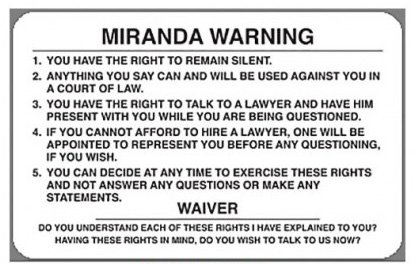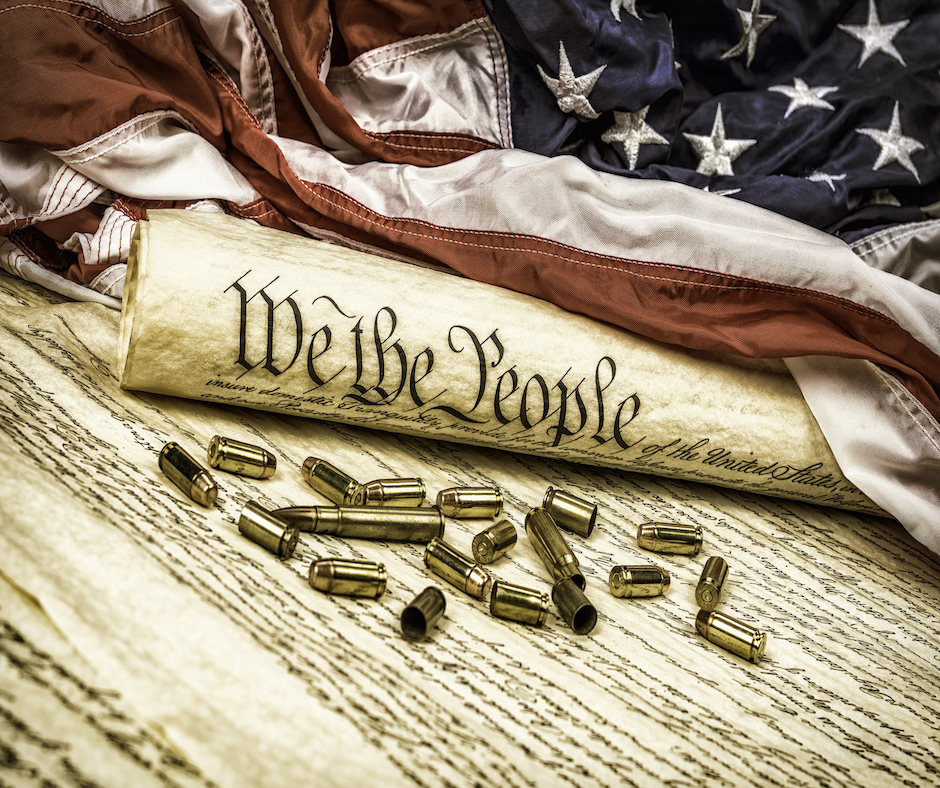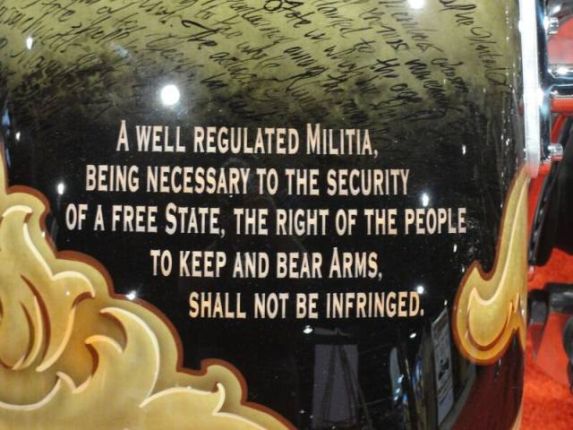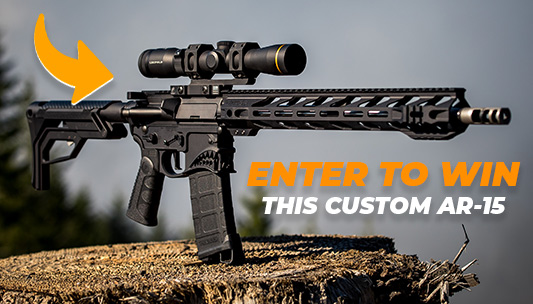Featured
The After-Incident Zip-Your-Lip Guideline And Its Exceptions
Published
1 year agoon
By
Eve Flanigan
The after-incident zip-your-lip guideline and its exceptions
A recent incident covered by Gun Carrier, “Peoria Man Speaks Truth To Media About Defending Self, But Should Not Have,” inspired this piece. My intent is to save stress, time, money, and face for readers who may one day find themselves drawing and/or shooting in defense of themselves or another.
As the Peoria Man story indicates, talking about the self-defense confrontation to police, press, or anyone in the moments and hours following the incident is generally a bad idea.
There are three exceptions to the guideline of keeping your mouth shut after an incident, if circumstances are such that they apply. Knowing them beforehand and applying them when appropriate, a gun carrier can bolster their legal case as well as help ensure safety of the area in the minutes or hours following their response to a criminal attack or threat thereof.
Those of us old enough to remember Sergeant Joe Friday on the Dragnet TV series can probably recall that distinctive voice reciting the iconic rule of American justice, the Miranda warning. In case you don’t have it committed to memory, here it is:

Miranda Warning
The adoption of the Miranda warning is an acknowledgement that there are excellent reasons to NOT talk in the moments and hours following a self-defense incident, speaking here of those which attract the attention of the law. Those reasons are rooted in the way we process information in extraordinary circumstances.
Humans, especially those inexperienced in combat, tend to demonstrate “excited utterances” immediately following sudden, stress-filled occasions. We likewise tend to experience emotional reactions ranging from celebration, to questioning our own actions or our role on the planet. Remorse can show up too. THESE ARE NORMAL REACTIONS, which can lead you to say things that work against you in court and even socially.
Another reason to stay tight-lipped in the wake of an incident has to do with recall. In a soon-to-be-published law review article on the controversy that lingers after a shooting incident involving US military contractors, Lt. Col David G. Bolgiano, USAF (Ret.) and Lt. Col G. John Taylor, USA (Ret.) have compiled currently available research on the topic of post-incident recall where law enforcement shootings are concerned.
Bolgiano and Taylor point out that it’s an accepted notion among FBI and most police agencies that incident recall improves in quality after the passage of two to three sleep cycles. The FBI, and most police agencies, provide their officers a period of two to three days’ downtime before depositions are recorded.
Although the neuroscience behind recall of an incident being at its best quality two to three days post-incident isn’t well understood, the effect is well known to be true in law enforcement circles.
This is a lesson for the civilian gun carrier. Though family, bystanders, media, and the police who show up to secure the scene and gather information will surely press for the juicy details, staying mum is your best bet. Tempting as it may be to run at the mouth, decide in advance that you won’t. Accept that what sounds like perfectly sound logic to you can be mis-interpreted and used to harm you legally. Accept that, whether your post-incident state of mind feels good or miserable, details will likely be remembered, after you’ve had some sleep.
So, as the internet memes go, “STFU” is the order of the day—with three exceptions. Here they are:
1) Accomplices—when the incident began, how many assailants were there, what were they wearing or driving, and which way did they travel? If you saw accomplices, tell the officers who show up, right away.
Not only does having noticed accomplices help your case in terms of a potential disparity of force argument, attacks on emergency response personnel by people who start an incident and then lie in wait are on the increase. This is the most important exception, for your safety and that of those in the area.
2) Evidence—did you see the attacker drop or throw something? Anything left behind, especially weapons or contraband, are likely to be picked up later by the accused or his/her associates.
If you saw something drop or get flung, tell the police when they show up.
3) Witnesses—when the incident began, did you notice bystanders or onlookers? Assuming your actions were justifiable, the accounts of these people could save your legal day.
Those are the exceptions to the wisdom of following Miranda to the letter.
By developing an understanding of the predictable, typical emotional and cognitive reactions in the wake of a critical incident, anyone can plan to give a limited, rational, and productive spoken response despite circumstances. Plan now for managing your mouth wisely, before an incident happens.
# # #
This painting by Baroque-era artist Jan Steen shows potential for exercising the three exceptions to the “don’t talk after shooting” rule. Of course, we advise against getting into fights when possible.

Editor's Note: This is some excellent advice that Eve has given to us. Always remember, the rights we are provided aren't just for criminals who break the law. The Miranda Warning also applies to people like you and I, who have no intent to hurt others. Let us know what you think about this in the comments below. Also, make sure you share this with your friends. Who knows, this could keep someone out of jail one day.
You may like
-


Everything You Need to Know About The Second Amendment
-


Women’s Self-Defense Options Outside Your Home: Evaluating Concealed Carry Firearms
-
Home Defense | 2nd Amendment Rights
-


Why We All Need To Stop Using The Term Assault Weapon
-
[Video] Man Shoots His Own Leg, Narrowly Missing Artery, Lives To Tell Tale
-


He Wants To Do What To The Second Amendment?
1 Comment
Leave a Reply
Cancel reply

CZ 75 SP01 Tactical Gun Review | Gun Carrier

PODCAST: Gun Law Changes All Across America Right Now

PODCAST: How to Win Olympic Gold

PODCAST: 50 Important Ideas For Self-Defense, Self-Reliance, and Personal Safety

10 Best Gun Safes In 2022 | Gun Carrier

DP-12 | Double Barrel Pump Shotgun Gun Full Review



Kerry Keel
May 24, 2016 at 7:59 AM
Eve did produce a good article. However, one thing did stand out. If I seem picky, then consider what others may think of her in the point I am about to make. “what where they wearing”. Pray tell, where was what they were wearing go to? Picky though it may be, credibility of an author does hinge on proper use of the language, and that includes spelling. Yes, People make mistakes. All of us do. However, that spelling check program in your computer is not able to know what you are thinking, nor what you wish to convey in your article. Spelling checker programs are interested in one thing, is the word spelled correctly. That is it, nothing more. If “you” meant “were” as opposed to “where”, the spelling checker program is only going to ask, were the words spelled correctly. Whether or not “where” is the wrong word to use is beyond the capability of the spelling checker program. The human brain needs to be fully engaged, and to be made to use the eyes it has access to, to proof read what it told the fingers to type out. Relying on a program that someone else wrote, and, not taking the time to know it’s limitations, leads to things like, “what where they wearing”.